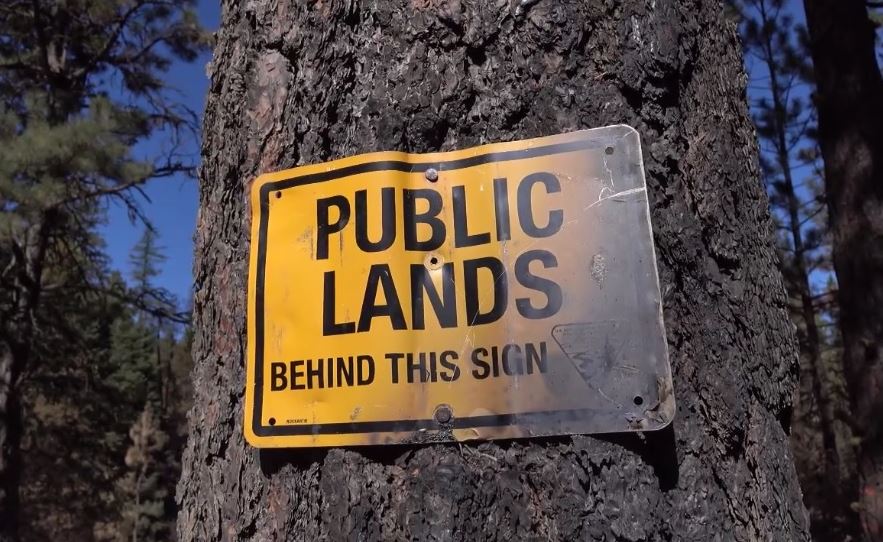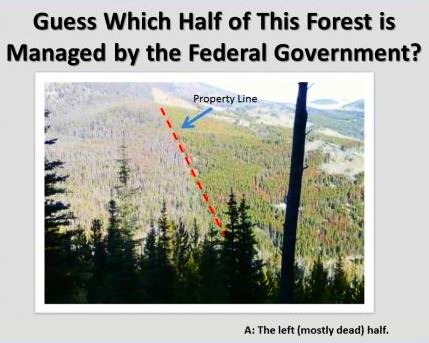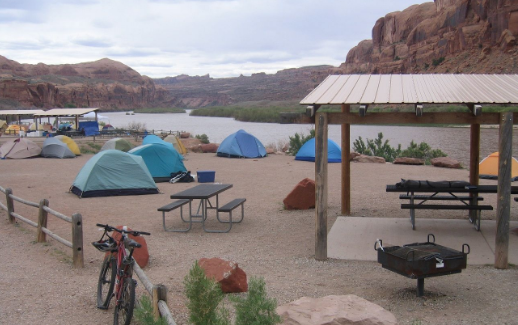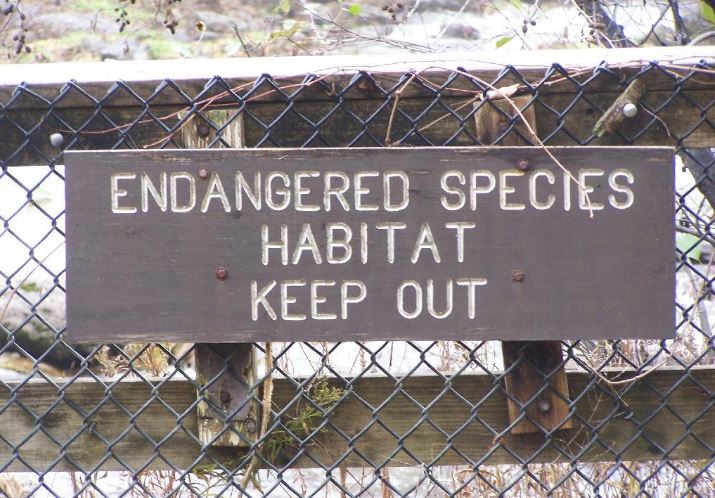Federal lands are, on average, in worse environmental condition than private lands and produce much less economic activity. That’s because management of federal lands, which comprise 27 percent of the American land mass, is largely based on the destructive notion that human activity is inherently bad for the natural world.
Myron Ebell
Competitive Enterprise Institute
Property Rights are the Key to Protecting Land
We often hear that only government can protect the environment through outright land ownership or heavy regulatory control of private land. Yet, time and again, private landowners’ stewardship has proven to be far superior to that of public land managers and regulators. That’s because private property and secure property rights give landowners the right incentives to take care of what they own. And unfortunately, federal regulations often undermine private conservation efforts.
In the new edition of Free to Prosper, a set of pro-market policy recommendations by the Competitive Enterprise Institute, we offer a series of sensible solutions to help improve private environmental stewardship through respecting property rights.
The Endangered Species Act (ESA) and wetlands regulations impose the costs of compliance on landowners, which gives regulators no incentive to contain costs. The solution? Enact meaningful compensation for regulatory takings that exceed 10 percent of a property’s current-use value.
Federal lands are, on average, in worse environmental condition than private lands and produce much less economic activity. That’s because management of federal lands, which comprise 27 percent of the American land mass, is largely based on the destructive notion that human activity is inherently bad for the natural world.
Many federal lands are now in a parlous state that directly correlates with declining resource production and the impoverishment of rural communities in areas of the West where the majority of lands are federally owned. For example, preventing timber harvesting in National Forests has led to catastrophic fires across the West as fuel for fires builds up over decades. It is time to unlock federal lands, restore multiple-use management, and increase resource production.
The new Congress and administration should work to stop federal purchases of private land and instead work to privatize federal land or transfer it to the states.
Finally, planning for speculative climate change impacts now permeates much of federal land management policy and planning. This has given federal land managers an excuse to include private property in their plans. In addition, the speculative future “social cost of carbon,” an arbitrary figure based on bureaucrats’ politicized guesstimates, is now being used in federal environmental permitting decisions. Congress should prohibit using this artificial metric in federal land management and environmental permitting.
Free Range Report
Thank you for reading our latest report, but before you go…
Our loyalty is to the truth and to YOU, our readers!
We respect your reading experience, and have refrained from putting up a paywall and obnoxious advertisements, which means that we get by on small donations from people like you. We’re not asking for much, but any amount that you can give goes a long way to securing a better future for the people who make America great.
[paypal_donation_button]
For as little as $1 you can support Free Range Report, and it takes only a moment.





Myron Ebell for president in 2020. Or at the very least, Secretary of the Interior. Great article. No Bears Ears monument. Not now. Not ever. Sick and tired of Federal tyranny and power hungry selfish elitist.
Fire is good for forests. It’s sustainable, and it helps grow native species that have evolved over millennia by using heat to open up seed pods, and nourish the soil with carbon,
Clear cutting is not advantageous to the environment. It’s in,y advantageous to the owners who treat the environment as one big money bag.
Private ownership risks that old growth forests, pristine wilderness areas, sensitive regions with rare or endangered flora and fauna will be destroyed due to private interests to mine, ranch, build, drain, dig, dynamite, whatever fill in the blank. We all pay for these areas. Why should one corporation or land owner make decisions which can have gravely destructive results?
Also, to break up the land into private segments of ownership inherently is bad for natural areas. It destroys wildlife rangelands. It also introduces nonnative species to a region. It creates havoc with sustainability when introducing farmable non native species into a region. Or for the sake of profit, to completely change a segment into say, a mine, or petroleum field where it was something completely different.
These are extreme changes to a land that American people do not want changes to. We all pay for these lands. Why should I allow someone to buy it and make their own profits with it as they see fit? Especially if it changes the landscape, harms wildlife, displaces species, upsets water tables, impinges on historic Native American rights or architectural sites, and I can think of a hundred other reasons.
The governmental ownership is certainly not perfect, I agree, but we need protections from any weathyland owner coming I. And do I g whatever they want to lands we ALL hold dear.
Typical big government socialist talking points. You might want to educate yourself on the facts about private ownership vs state management vs centralized command and control by politically-driven bureaucrats.
https://www.perc.org/2015/03/03/divided-lands-state-vs-federal-management-in-the-west/